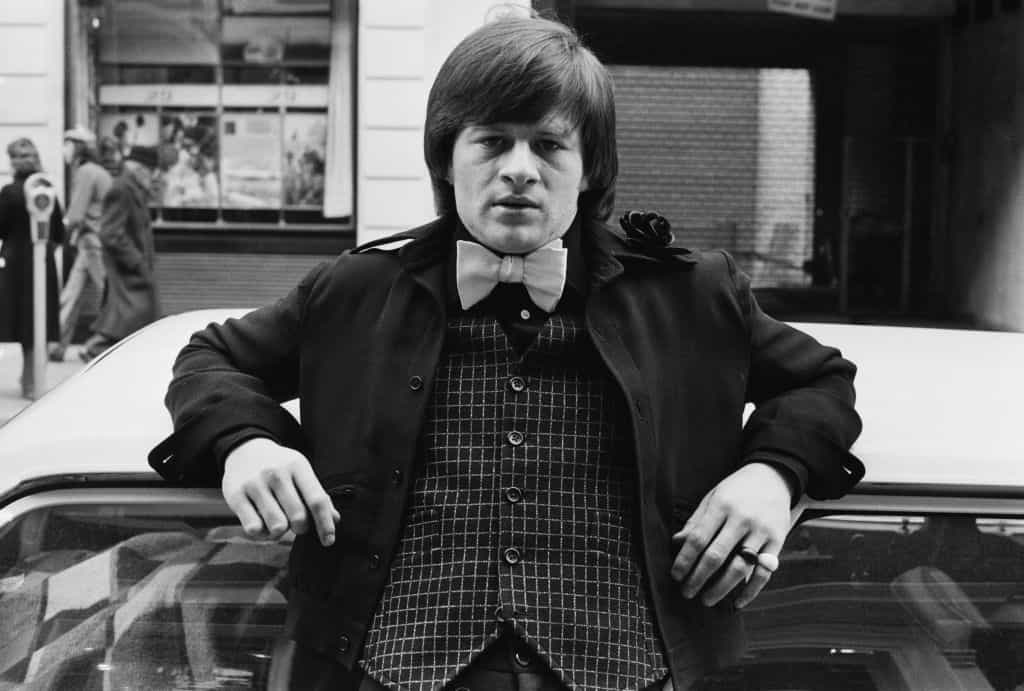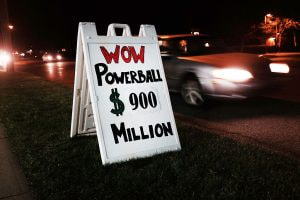How Snooker’s Alex ‘Hurricane’ Higgins Blew Fortune and Fame
Never one to step away from controversy, snooker star Alex ‘Hurricane’ Higgins was as notorious for his actions away from the green baize as on it. The Northern Irishman won the World Snooker Championship twice, but a year rarely passed without the charismatic former stable hand making the front pages of the UK’s red-top newspapers.

Alex Higgins looking cool in London in 1973 ©GettyImages
Higgins passed away in 2010, aged 61. At the time of his death, his fortune, once valued at £4 million, was gone. The man labelled as ‘the people’s champion’ throughout the 1980s was living on a disability allowance that barely covered his life-long 80-cigarette-a-day addiction.
Here, we will examine some of Alex Higgins’s incredible highs and heartbreaking lows. A showman, bold, and rarely modest – reflecting on his career, he once said, “I think I was the most natural, charismatic player who ever lifted a cue” – Higgins was the definition of a ‘flawed genius’.
The Assault Began in the 1970s
In 1972, 22-year-old Alex Higgins became the youngest-ever World Snooker Champion. The marathon tournament began in March 1971 and concluded in February 1972. His prize for beating John Spencer 37-31 in the final was £480.
His success led to an invitation to play in a series of exhibition matches in India. However, a planned tour of the country lasted just one day as his decision to play while drunk and shirtless mortified his hosts, who sent him home on the first available flight.
Higgins’s first of many incidents with tour referees came two years later. During a match at the 1974 World Snooker Championship, Higgins suggested to referee Jim Thorpe that he should “read the f’ing rule book” after Thorpe adjudged Higgins to have ‘pushed’ a ball.
The first of several assault allegations was also cast in his direction during the 1970’s. In 1978, a female friend claimed she had been attacked in a hotel. Higgins successfully defended himself on this occasion.
Taking Titles and Hitting the Headlines
At the table, Higgins lost the 1976 and 1980 world finals. But he took his second World Championship in 1982, adding it to his 1978 and 1981 Masters titles. Strikingly, at a time when Snooker was beginning to prosper as a TV spectacle, he came from 7-0 behind to beat Steve Davis 16-15 in the 1983 Coral UK Championship final.
But turmoil and Alex Higgins were bedfellows throughout the 1980s. Taking advantage of his superstar status by charging fans extra for posters that he had autographed with a gold pen during the 1983 Embassy World Snooker Championship was one example of the negative press he so often generated.
More seriously, twelve months later, Higgins attempted to commit suicide in front of his wife Lynn and their two-year-old daughter, Lauren, while holidaying in Majorca. In 1985, he went berserk, smashing up the family home as Lynn locked herself in the bedroom with the children. It took six police officers to arrest him.
Divorced, drinking heavily, and collecting more black eyes than a fairground prize-fighter, the Hurricane acquired numerous small fines for disciplinary offences as the decade progressed. The pièce de resistance was the £12,000 fine and five-tournament ban he received from the sport’s governing body for headbutting the tournament referee at the 1986 UK Championship.
Higgins was reportedly being troublesome in giving a urine sample for a drug test. And following the headbutt incident, a scrum that spilt out into a corridor saw criminal charges brought against him. Ultimately, Higgins was fined £200 for assault and £50 for criminal damage to a door by Preston’s Magistrates Court.
A Punch, a Kick, and a Masterstroke
The history books show Higgins’s last professional tournament victory came in the 1989 Irish Masters. Given he had only just dispensed of the crutches needed to recover from a foot injury sustained when falling from his girlfriend’s second-floor flat, it was an amazing result. Two years earlier, he had been fined £500 for being abusive towards the tournament director at the same event.
But he was about to spiral out of control and out of the sport of Snooker. Two 1990 incidents – threatening to have fellow Irishman and snooker pro Dennis Taylor shot at the World Cup in Bournemouth and punching the sport’s press officer who held a door open for him at the World Championship – led to a 15-month ban. He consequently fell from the sport’s top 100 and never recovered.
In June 1996, Higgins pleaded guilty to kicking a 14-year-old friend of his son. He received a 12-month conditional discharge for the crime and was ordered to pay court costs. His last match among the professional ranks came in an August 1997 Plymouth qualifying event. Losing 5-1, he became troublesome and was escorted from the venue by police. Afterwards, they found him sprawled on the ground outside a nightclub at 4 am.
Later in 1997, while hopelessly in love with alcohol, Higgins did have a new girlfriend, 26-year-old prostitute Holly Haise. This relationship ended when she stabbed him three times during an argument at her Manchester house. Police found him hiding under a bush and slowly bleeding. He never pressed charges.
The Cult Figure Blew Itself Out
The following year, Higgins was diagnosed with throat cancer, which he battled for over a decade. By the time he died, obscurely and penniless at the age of 61 in 2010, he was suffering from multiple health-related issues. In a Guardian obituary, Clive Everton wrote: “When snooker could no longer serve as the glue to hold his life together, he [Higgins] made no concessions, no pleas for sympathy.”
In 2022, the Mirror newspaper noted: “Higgins represented Snooker’s first real superstar, akin to Paul Gascoigne in his standing as a cult figure. When Snooker was particularly popular in the 1980s, it was Higgins who undoubtedly appealed to a wider audience. For all the negative publicity Higgins received as a result of ill-advised actions, the positivity the Hurricane brought to the sport of Snooker will surely never be forgotten.”



